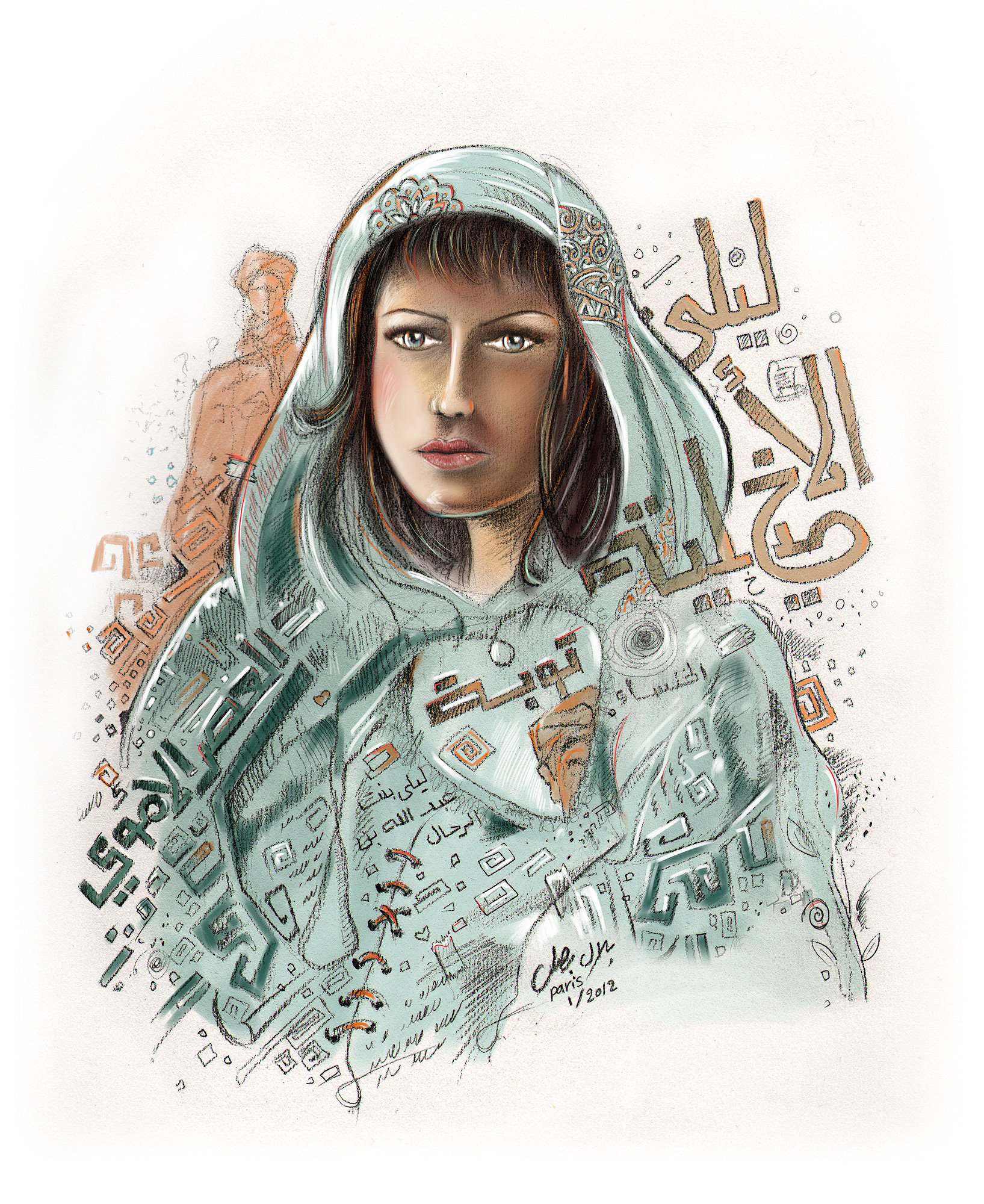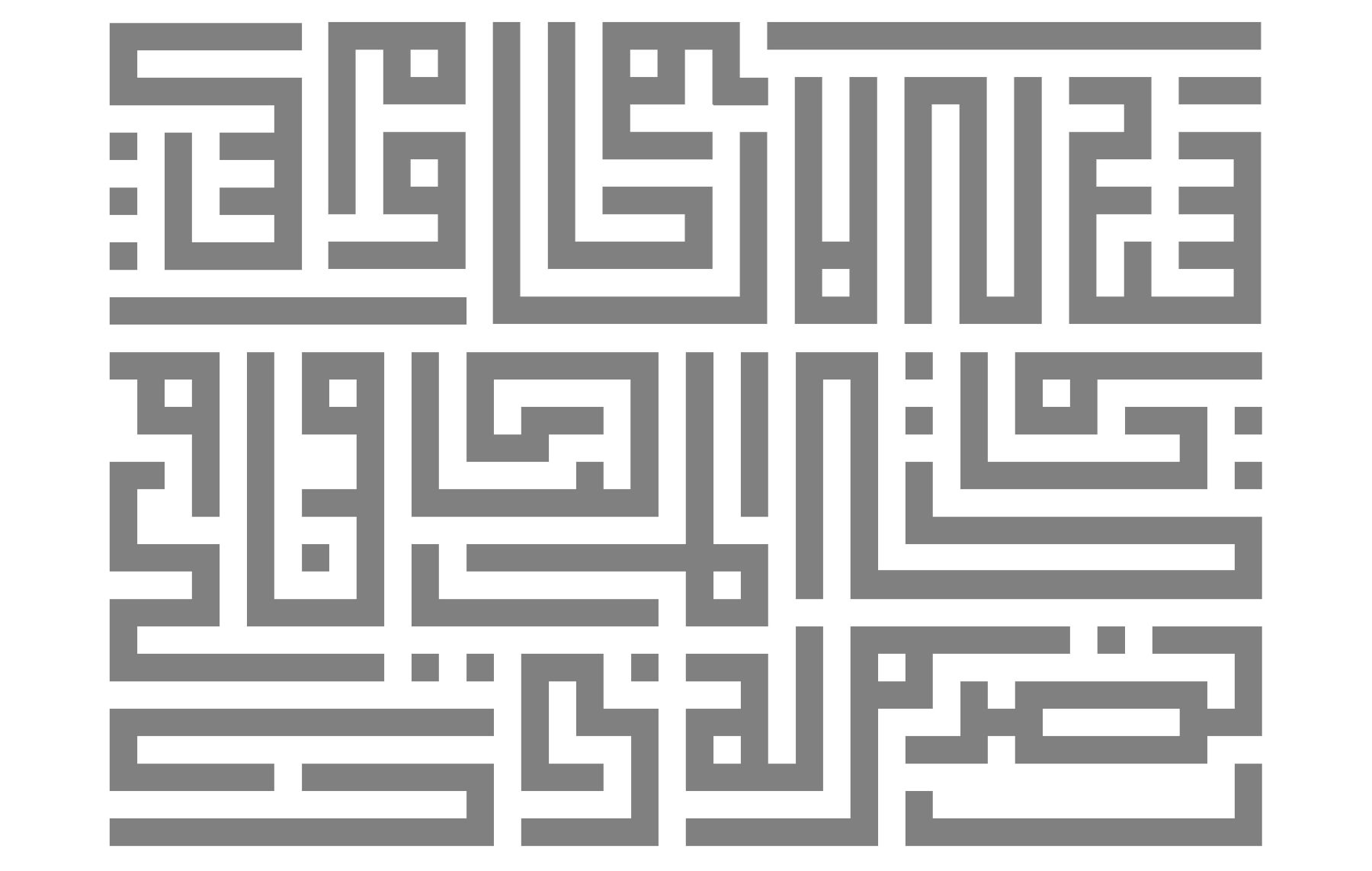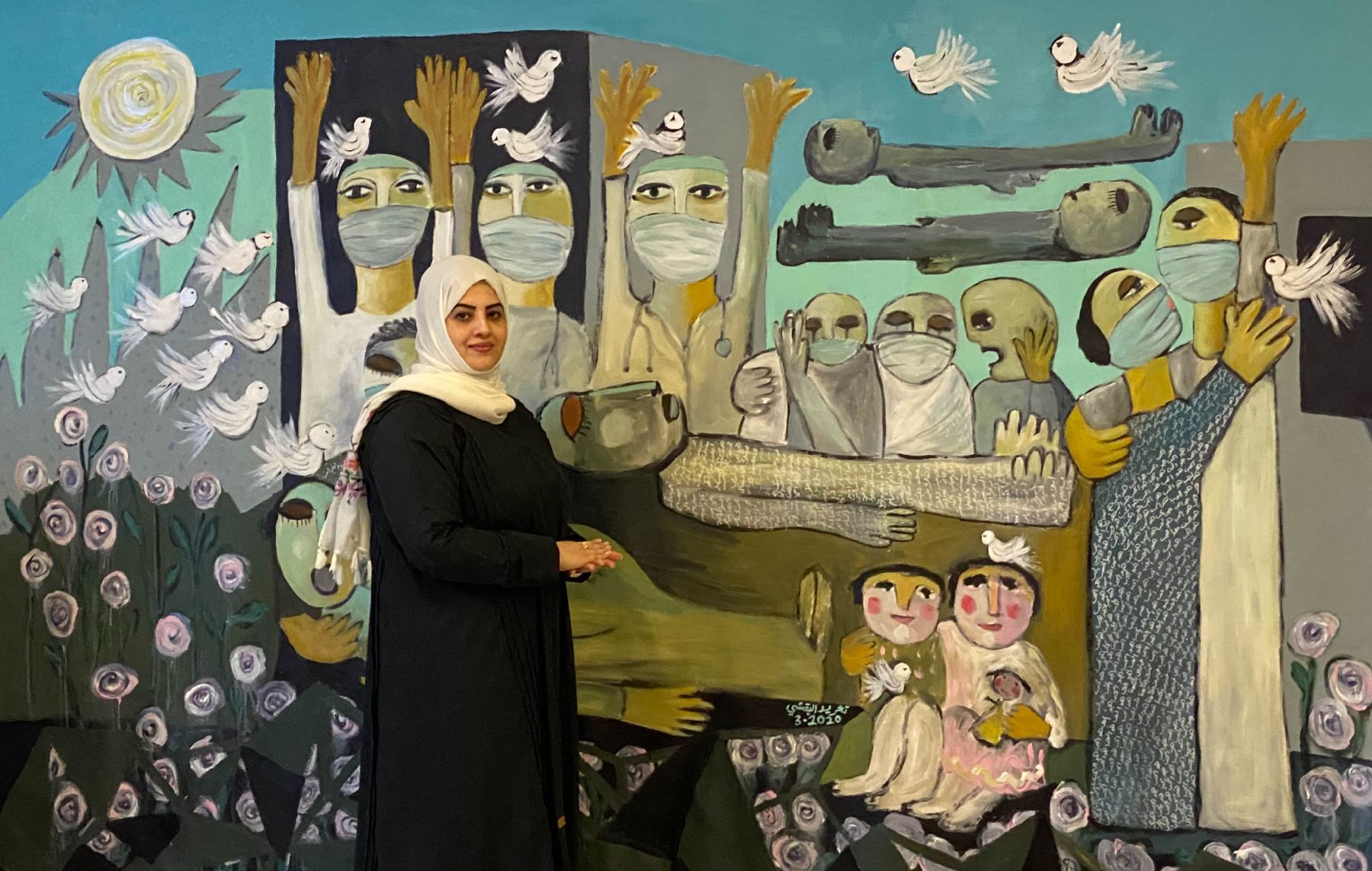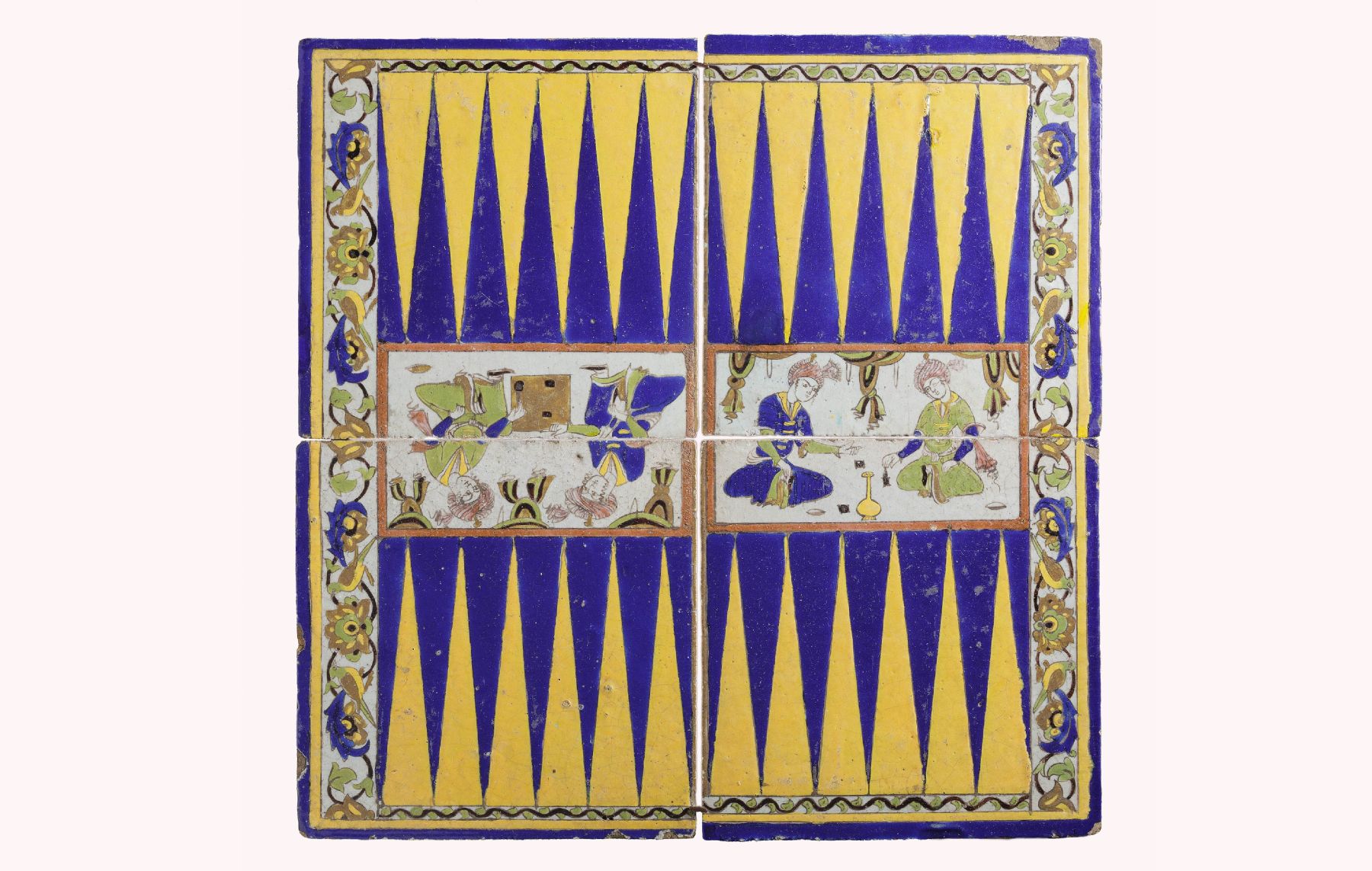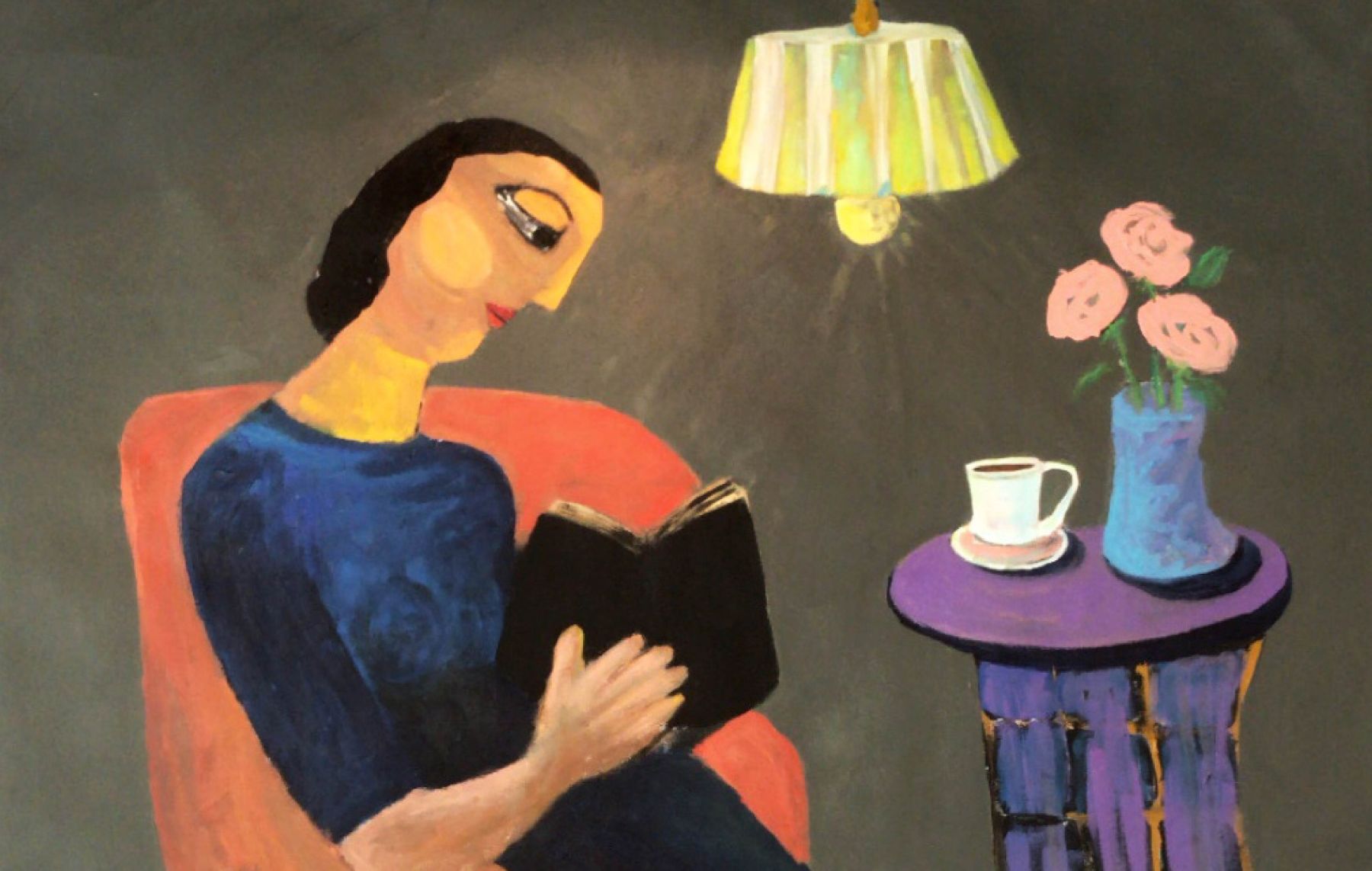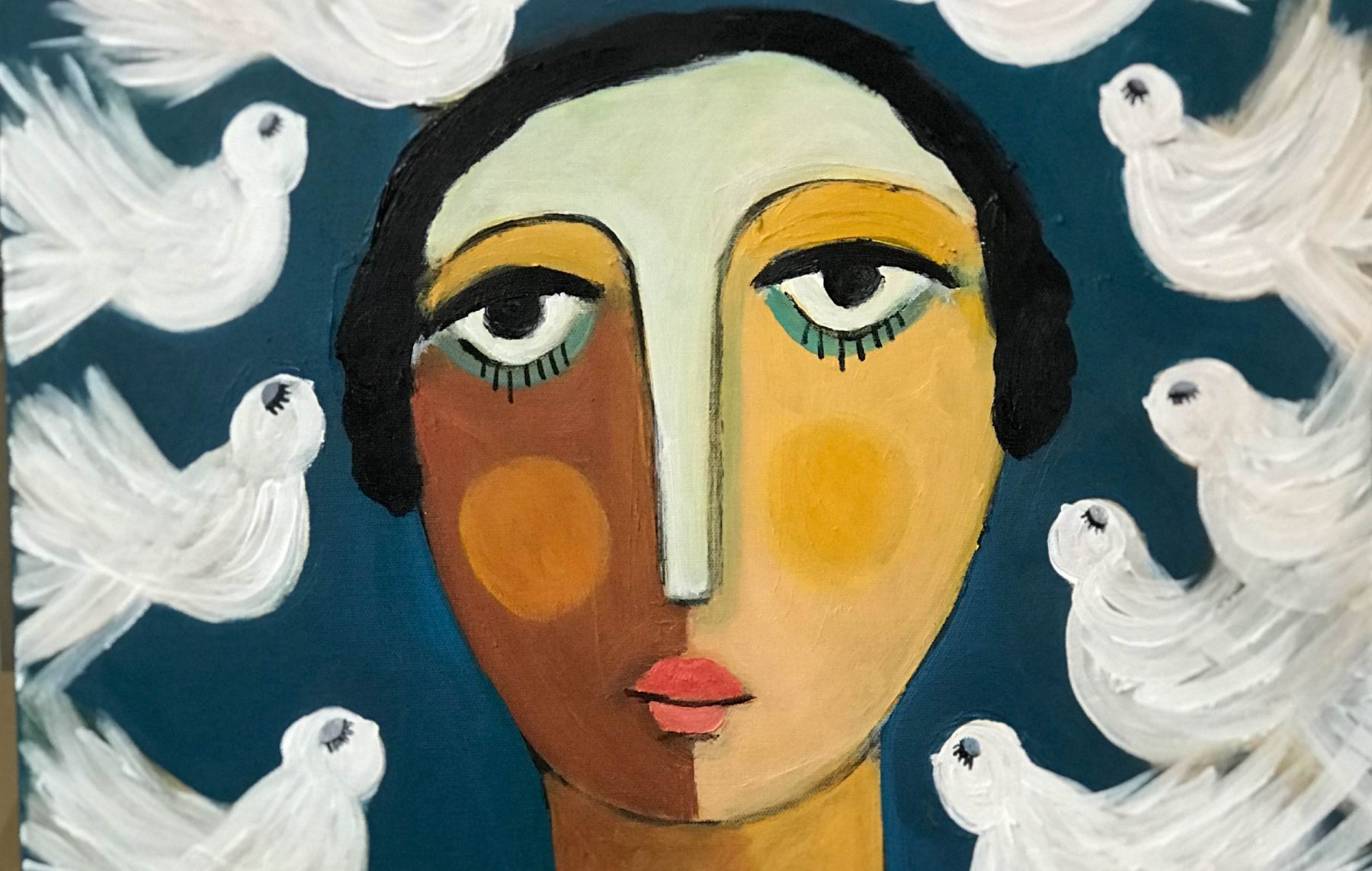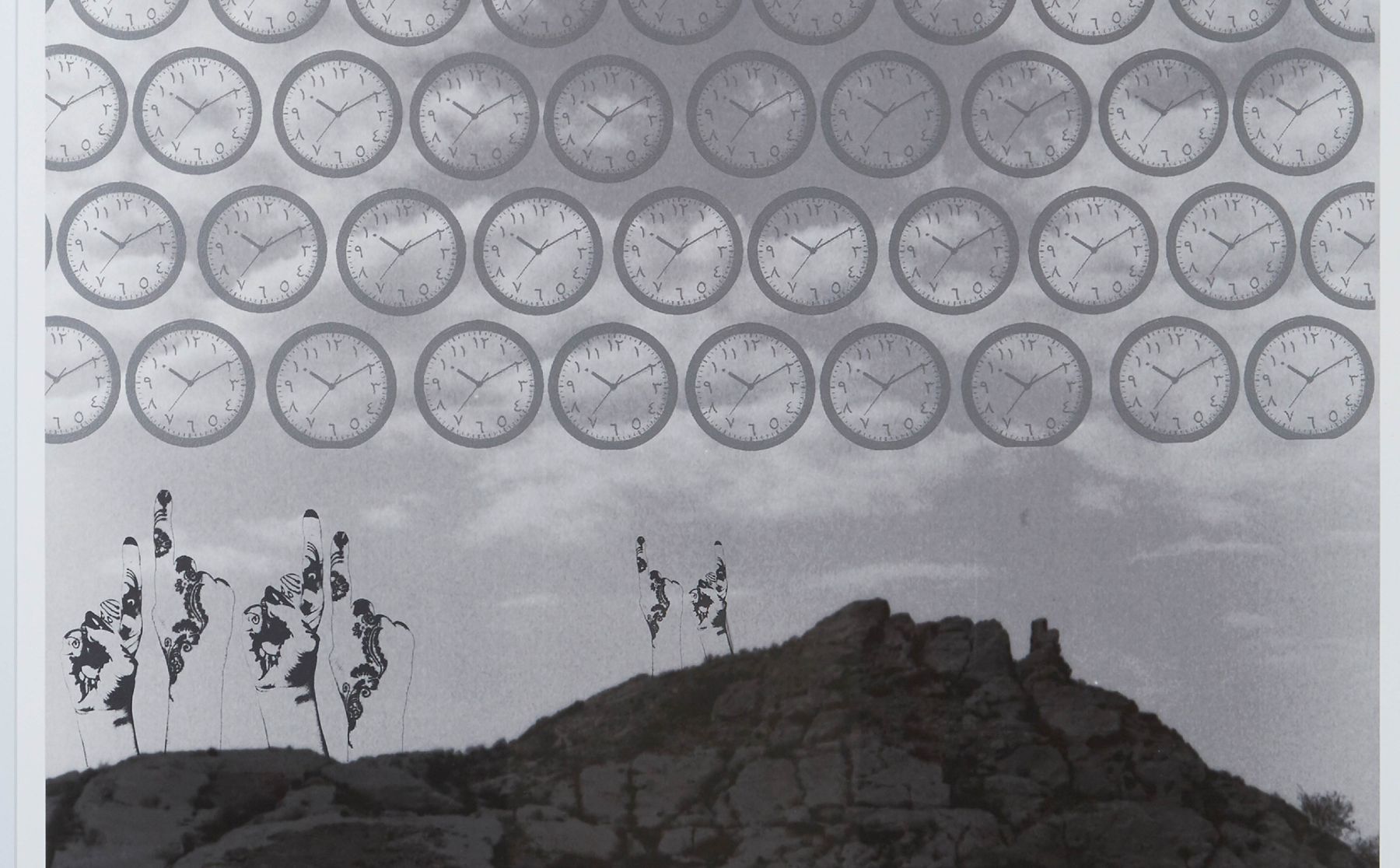Layla & Tawba
Death reached him when he became perfect and those who would compete with him will fail He was like a lion protecting his den, cubs and lioness...
Love is not a one-way street, nor are love poems solely a man's domain. It can look that way though, as it was more common for Arab female poetess to craft elegies while the men praised leaders and romanced the persons of their affection passionately and often tragically.
Enter Layla Al-Akheeliyah, a 7th century CE Arab Muslim poet born in the central part of the Arabian Peninsula, ready to leave a different kind of legacy. A legacy of beauty, strength, wit, and defying tradition by declaring her love of a man to the public.
Layla & Tawba art piece by Bilal Bassal
The Love of her Life
Coming home after a raid with his fellow warriors, Tawba ibn Humayyir caught sight of Layla as she welcomed them back, and fell head over heels in love. Being a poet at heart, he couldn't help but proclaim his undying love for Layla in verse to anyone within earshot. This proved too embarrassing for Layla's family, who refused their union and immediately married her off to another man.
That did not stop the two poets from meeting secretly time and time again. Her husband, jealous and furious of what was happening, complained to the sultan who granted him permission to kill Tawba if they ever caught him near her again.
They set up a trap to capture and kill Tawba at the usual spot where he met Layla. Seeing what was about to happen, Layla went out ahead on the path Tawba usually came from and unveiled herself to warn him. Given that she had never met him without her veil, he felt that something was wrong and fled the other way.
Tawba's Death
She saved him then, but Tawba went on one too many raids and eventually met his demise sometime in the 670s, an outlaw in the eyes of the government for his opposing views.
His love poetry had always focused on Layla, but instead of being the silent recipient of all that love and prose, after his death she reciprocated with her own words.
What could have been regular elegies for a fellow tribesman became controversial because they were now lamentations for a departed lover. The female object of this love poetry had a subversive voice of her own to evoke deep feelings and empower women's speech.
He reached the heights of things with ease when they tired every bounteous noble.
He was honey—no, I see a beehive his likeness, with the liquor of reddest Baisan wine.
O eye, weep tears continually flowing, weep for Tawba in hidden fear; for a man of Banu Sa’id that I suffer for.
What was it that took him to a stony grave, from the pure grammar and the rhymes like spearheads and a thing not shared?
Pushing Boundaries
When she wasn't elegizing her love, she would praise leaders which was normally a male poet's job to do.
She met with many of the leaders of the Ummayad Caliphate, including Muawiyah, Marwan ibn Al-Hakam, Abd Al-Malik ibn Marwan, and the infamous governor Al-Hajjaj bin Yusuf. With each of them, they would question her about her love of Tawba, and each time she defended him and their love.
She met with the fifth Umayyad Caliph Abd Al-Malik ibn Marwan and he asked her, "What did Tawba see in you that made him love you?" She replied, "What did the people see in you that made you their Caliph?"
She even waged a war of words with the poet Al-Nabighah Al-Jadi. He had publicly criticized her husband, Sawwar bin Awfa, in the poetic form of hija, and since Sawwar's skills were nowhere near his wife's, Lalya took over the battle of the wits and emerged victorious.
Layla's Death
The details of her death are not clear, but befitting any revered poet living a life of tragic love, the legend of her death follows suit.
Layla was riding in a palanquin and passed by the grave of Tawba. She told her husband, “I swear, by Allah, I will not move from this place until I greet Tawba.” Her husband tried to prevent her, but she insisted, climbed the knoll on which Tawba's grave stood, and said: “Greetings to you, oh Tawba.” Then she turned to those around and said: “I never knew him to lie before.” They asked “Why?” She said: “Did he not say:
If Layla Al-Akheeliyah turns to me with words of greeting,
when I am at rest in the earth beneath a gravestone,
I will affectionately answer her greeting,
or the owl which hides by the grave will answer her.
Why did he not answer my greeting as he promised?” But an owl was hiding by the grave. Upon seeing the palanquin, it grew uneasy and flew toward the camel. The frightened animal broke into a run and threw off Layla, who struck her head on the ground and died on the spot. They buried her alongside him.
In the end, the two lovers were rejoined.
Special Contributor:
Ahmad Dialdin, a Saudi Editor and senior feature writer, who writes about art and culture. He also works at the Ministry of Culture.


